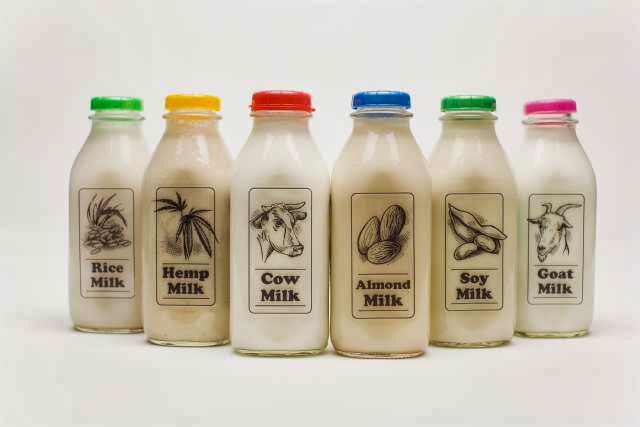The dairy case is very crowded. Today, cow’s milk is competing for shelf space with imitation milk alternatives. Cow’s milk is naturally superior. It has about twice the protein of other so-called milks and contains the most absorbable source of calcium.
Cow’s milk is a key ingredient to overall health. It strengthens bones, improves muscle function, increases energy levels and promotes good vision.
Regardless of variety in fat content, a cup of cow’s milk is packed with eight grams of protein, 12 grams of carbohydrates, and 300 milligrams of calcium (that’s almost one-third of our daily recommended value). Milk is also naturally high in many other minerals and vitamins such as potassium, phosphorous, and B vitamins.
The ingredient in whole milk is milk. Period. Low-fat and non-fat milk are fortified with vitamins A and D. Simple and natural, milk contains nine essential nutrients; calcium, potassium, protein, phosphorus, vitamin A, vitamin D, vitamin B12, riboflavin and niacin.
Imitation plant-based milks, like soy, almond, rice, coconut and hemp, are highly processed containing many added ingredients. These milk alternatives use fortification to mimic the nutrient profile of cow’s milk.
Cow’s milk is naturally superior to non-dairy imitations. It’s also an excellent choice when compared with other beverages. If you have difficulty digesting lactose, try delicious lactose-free cows’ milk.
Looking for a healthy, natural, nutrient-dense beverage? Cow’s milk is the best choice!
Source: The Dairy Mom Blogspot





No comments:
Post a Comment